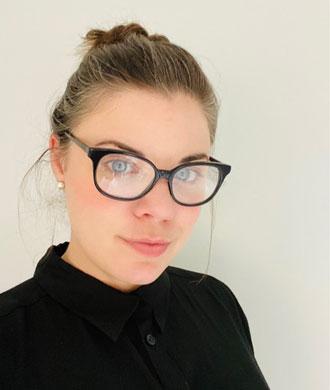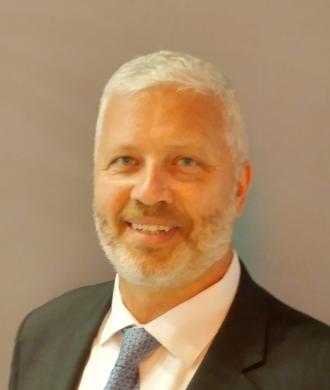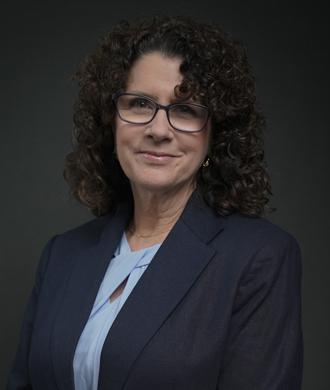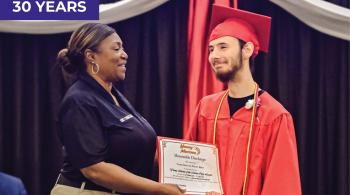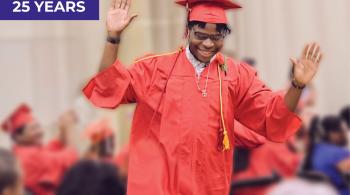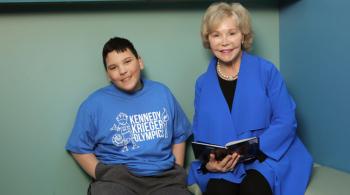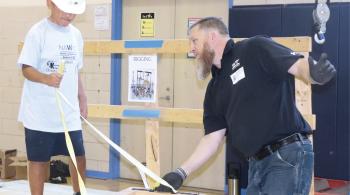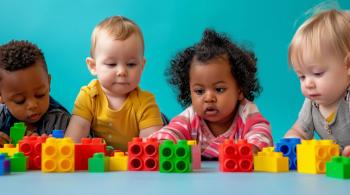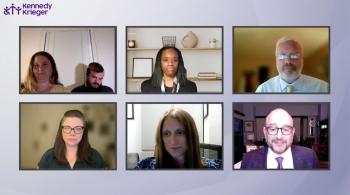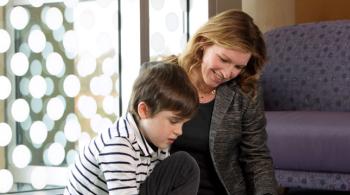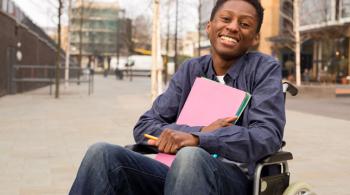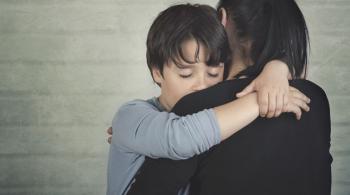In this second episode of Your Child’s Brain, educational experts Dr. Lisa Carey, Dr. Linda Myers and Dr. Aaron Parsons discuss the neuroscience of learning. Every child learns differently and understanding that one size doesn’t fit all can help both teachers in the classroom and parents at home to create success for all children.
Speakers Include
- Dr. Lisa Carey, Assistant Director, Center for Innovation and Leadership in Special Education, Kennedy Krieger Institute.
- Dr. Linda Myers, Vice President of School Autism Services, Kennedy Krieger Institute.
- Dr. Aaron Parsons, Vice President of School Programs, Kennedy Krieger Institute.
Learn More About Our Featured Speakers
Learn More About Our Featured Speakers
View Episode Transcription
Episode Transcript:
Linda Myers (LM): Hello, I'm Dr. Linda Myers, a special educator, a professor, and a school administrator. I'm currently vice president of school programs at Kennedy Krieger Institute. Your Child's Brain is a new podcast series produced by Kennedy Krieger Institute in partnership with WYPR. Thanks for joining us to explore the mysteries of your child's brain. On this month's show, we're talking about education and the brain. Today, I'm joined by my colleagues, Dr. Aaron Parsons, also vice president of school programs at Kennedy Krieger Institute. Hello Aaron.
Aaron Parsons (AP): Hello Linda.
LM: And Dr. Lisa Carey, Assistant Director of Kennedy Krieger, Center for Innovation and Leadership in special education, and an Assistant Research Scientist at the Johns Hopkins University School of Education. Welcome, Lisa.
Lisa Carey (LC): Hi, great to be here.
LM: Lisa, let's jump right in. What do we mean by the neuroscience of learning?
LC: The neuroscience of learning is when we take what is known from neuroscience research and clinical expertise and neuropsychology and neurology and then we take what is meaningful to apply in the classroom and we use it to inform our instructional practices and our instructional decision-making. Two things that I think are really exciting about the neuroscience of learning is one that we know that brains are just so variable from the timelines in which they develop to the way they develop and function that kids and adults are just learning in very different ways and so they benefit from lots of different modalities. And then the other piece that's really exciting is understanding the importance of emotion for learning and for memory-making and memory retrieval and that we're seeing a big increase in schools paying attention to how important emotion and emotional regulation is for learning.
LM: I think you make a good point, Lisa. It's exciting what neuroscience brings for the field of learning and education but it also sounds complicated. Aaron, how is this helpful to teachers, particularly special education teachers?
AP: Well, I think it can be very helpful to teachers, but as a special education teacher, you have the ability often to receive a neuropsychological report. You can think of that report as a map of the cognitive function of your child, the student who you're providing instruction to. It's an indirect map, but it maps very various areas that are important for learning and instruction. When you're teaching the child, you're looking not just at how the child is incorporating this new knowledge, sequencing it to form new ideas, but also how they're doing it. This is the roadmap that can provide you really the place to start and your best avenues for success.
LM: One of the things that also makes me think of it in our settings at Kennedy Krieger specifically and most special education settings is that it's not just teachers that are accessing these neuropsychological reports or research-based interventions. But we've got multidisciplinary teams, folks from a lot of different clinical backgrounds who work with our students. Aaron, can you talk a little bit about that, the multi-disciplinary approach to the implementation of these best practices?
AP: I think it's really critical in delivering the best service to the child. I mentioned that a neuropsychological report was essentially a map, an indirect map of a child's learning or their ability to learn their strengths. When you're using a map, it's important to talk to the locals of the folks that helped create the map. As a teacher, it's really critical to draw on the expertise from these related fields. Of course, the ability to speak directly to the clinician who's conducted the report is critical, but also the other related service providers we're working with this child. That's really you are not the teacher on her own or his own that's trying to help the child access the curriculum. It's really this multidisciplinary team. It's important to also talk to the student, talk to the child about how they learn, help them understand the process that they're going through. I include the child in this multidisciplinary team as well.
LM: We strongly encourage the parent's input into a team and I think sometimes that all of the reports that are presented to a parent can be overwhelming. Lisa, you've had some experience with parent training. What advice do you give to our parents about navigating all of the vocabulary and different ins and outs and complications that might overwhelm them at the information in a neuroscience neuropsychological report?
LC: Great. I think first is take a deep breath. It's not as overwhelming as it looks at first blush, but just making sure that everyone at the team is reminded to use language that everyone understands and that we're defining our terms as we're using them so that nobody feels left out of the conversation. I also usually recommend that parents bring someone with them, not necessarily an attorney or an advocate, but someone just to be there, to be another person for support, for emotional support. It can be very emotional going and talking to all these people about the progress of your child and just having someone extra there to be another listener, another person with input or a person there to remind you that you have really critical important input that the team needs to know about. I think that can be really helpful just to have that emotional support because the team does need to know what the parent is thinking. What the parent is experiencing. How the child is doing at home. Parents really know their kids so well and it's really helpful for everyone involved from the parent feels like a powerful, meaningful member of the team.
LM: I'm sure one of the things on everybody's mind is, my gosh, where did our best practices in neuroscience and all of the research base, where did that fit in during this past year? During the implementation of education strategies, during virtual learning due to COVID. Everybody experienced it on some level, teachers had to relearn ways to individualize and apply universal design for learning strategies across virtual platforms. Aaron or Lisa, I don't know if you want to comment on that [LAUGHTER].
AP: I would love to. I know that the introduction of virtual education, essentially to an entire nation has been something that's caused educators, parents, students a lot of stress and everyone is concerned about these lost years. If you have a child that you're concerned about their cognitive development, you've got, as Lisa mentioned, a lot of variability in stages of development, and normal can look pretty different across students. I think these concerns are universal. Parents, they're going to be an important part of this conversation to talk about the relative gains that their child has made. I think it's important to focus on, looking at benchmarks, looking at what may have been gained and the rate at which it may have been gained in these virtual services. Trying to best project what it would've looked like, had the services been delivered in person. Then working as a team to capitalize on a child's resilience and to help bring them back instructionally to where we believe they should be. I really think there is hope. But I think parents, educators, and clinicians treating children are going to have to be highly involved in the next months and years to really assess and look at these ranges of development and see what impact of these virtual services had on our children's learning. But again, children are resilient and there's broad ranges and development. I think that we do have a message of hope.
LM: I agree, and in 30 years in this career, I have no doubt students are resilient and parents are too.
LM: You've been listening to your child's brain. Your Child's Brain is produced by Kennedy Krieger Institute in partnership with WYPR and producer Mark Gunnery. Please join us next time as we examine the mysteries of your child's brain.
Your Child's Brain is produced by Kennedy Krieger Institute, with assistance from WYPR.

